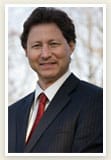DWI Related Traffic Stops Probable Cause Searches and Seizures

Law enforcement may only stop a suspected intoxicated driver under limited circumstances. To stop, search and arrest citizens, law enforcement officials must operate within the protections afforded by the Constitution. If an officer makes an unlawful stop, an unlawful arrest, or conducts an unlawful search or seizure, the evidence against the suspect may be suppressed at trial or the charges may ultimately be dropped. The circumstances surrounding a traffic stop and any resulting arrest or seizure will determine whether the police officer acted within the confines of the law.
Reasonable Suspicion and Probable Cause
A suspected drunk driver may only be lawfully pulled if law enforcement has reasonable suspicion that a crime or traffic violation has been or is being committed.
Reasonable suspicion is determined by evaluating whether the “big picture” – the totality of the circumstances in the situation – justifies a specific and unbiased opinion that the driver has committed an illegal act. If the situation reasonably suggests criminal activity (such as drunk driving) is occurring, law enforcement may lawfully conduct a traffic stop. Thus, if a driver is driving erratically or weaving in and out of lanes, this is likely sufficient reasonable suspicion to pull the driver over.
Even if the circumstances and behavior of the driver do not support reasonable suspicion that the driver is drunk, however, the driver may be pulled over if law enforcement has probable cause for a traffic violation, such as speeding, having a broken taillight or running a red light. The Supreme Court has noted that probable cause is difficult to define. Like reasonable suspicion, probable cause only exists when the total circumstances of a situation justify the determination that wrongdoing has occurred. However, probable cause is a higher standard than reasonable suspicion, so it is harder to prove and law enforcement must generally have relatively solid evidence to support probable cause.
Search and Seizure
Once a suspected drunk driver has been stopped, law enforcement have a limited right to search the vehicle and seize certain evidence of wrongdoing. Generally, any item in plain sight – such as if contraband or evidence of illegal acts – is fair game for seizure by police even without a warrant. Moreover, a person’s Constitutional protection against unreasonable search and seizure can be waived: If a stopped driver voluntarily gives permission for a broad search the vehicle and/or containers within it, law enforcement may do so. Otherwise, the search of stopped vehicle has to be conducted pursuant to a warrant or under one of the exceptions to the search and seizure clause.
During lawful stops, law enforcement always have the right to:
- Use a flashlight to look into the passenger compartment and seize evidence in plain sight
- Walk a trained dog around the vehicle and search the vehicle if the animal alerts that illegal contraband is contained within it
- Order the driver and passengers out of the vehicle, order persons in the vehicle to remain in the car with their hands in view or order those who have exited the vehicle to return to it
During lawful stops, if law enforcement has reasonable suspicion that a person in the vehicle is armed and dangerous, they may:
- Frisk the person
- Inspect any unlocked container on a person (such as a pocket) or carried by a person (such as a purse) which could house a weapon
- Inspect the vehicle’s passenger compartment, including any unlocked containers located there
The rules are a bit different if a suspected intoxicated driver was also stopped and subsequently arrested based on reasonable suspicion of another crime, including crimes involving a weapon or drugs. In that situation, law enforcement may search the vehicle if they reasonably believe that evidence of the offense the suspect was arrested for might be found in the vehicle.
For Further Reference
The issues that inform vehicle stops and searches and seizures are complicated. Anyone who has been stopped for suspicion of DWI and questions whether the police had probably cause for the stop should contact an experienced criminal defense attorney for legal advice. Likewise, anyone who has been charged with a crime related to evidence uncovered during a search of their vehicle following a traffic stop should obtain counsel immediately. The police don’t have unlimited power to stop or search a vehicle, and an experienced attorney can help those facing charges to understand their rights.
